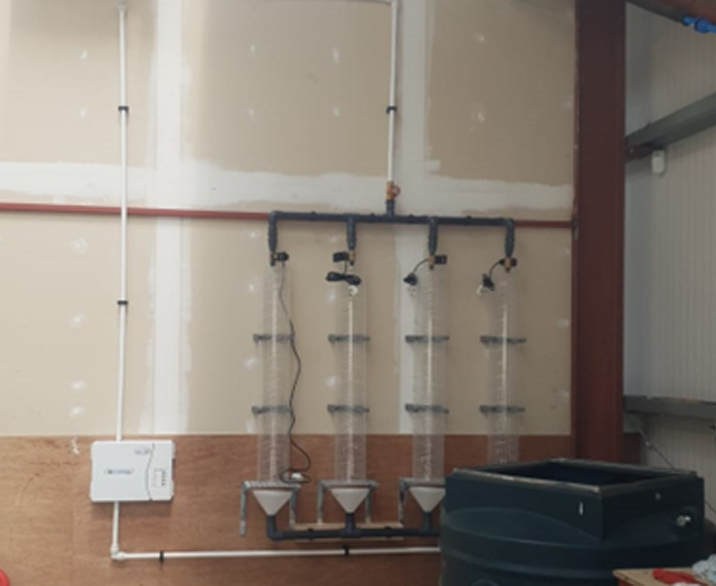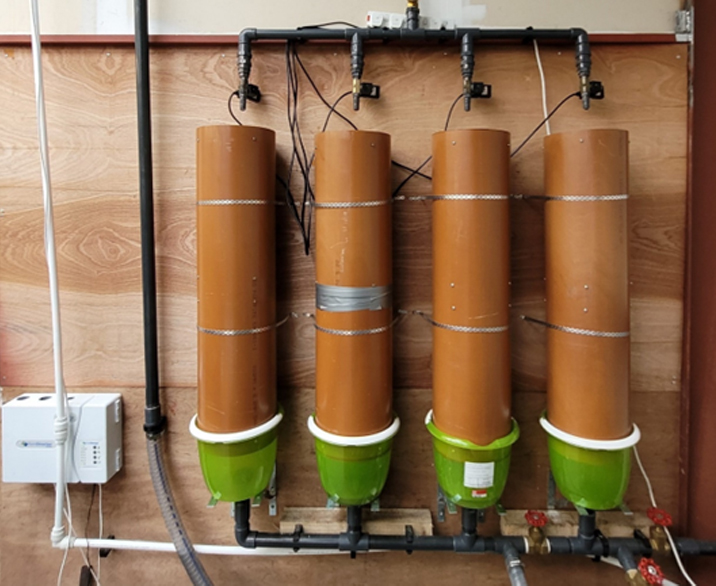
Develop bespoke wastewater solutions for commercial clients

Diverse and innovative product range
Headquartered in Northern Ireland, UK, Harlequin Manufacturing is one of Europe’s leading providers of innovative polyethylene storage tanks and systems.
While the company’s services and operations have expanded over the last 40 years, the underlying principles of our family-owned business have remained constant. Our family has grown from 3 people in 1981 to the present 105. Harlequin has developed a diverse and innovative product range for its clients in the residential, commercial and agribusiness sector. They engineer a wide range of specialist products, such as sewage treatment plants, rainwater harvesting systems, storage tanks and hot water storage systems.
Harlequin wished to expand the range of wastewater products already offered by the company to allow them to diversify beyond the heating fuel market and allow them to develop bespoke wastewater solutions for commercial clients. This project allowed Harlequin to develop a bespoke post-septic prototype tank that will allow customers to upgrade their existing system to meet increasingly stringent environmental standards without the need for investment in a whole new Wastewater treatment system. Access to an academic partner allowed the company to develop in house capacity and skills to further develop market driven quality products that meet stricter regulatory discharge limits for wastewater discharges.
Pilot plant in-house
The project team designed and built a pilot plant in-house to help determine the parameters and limitations involved in creating a protype system that could then be upscaled into a full production unit.
At the start of the project, the existing wastewater treatment systems within Harlequin and their competitors’ systems were reviewed, and a preliminary design specification for a post-septic unit was developed. The equipment required to set-up a wastewater analysis lab and materials for the testing rig was ordered and received. This equipment was then used to set-up an operational testing rig and a functioning analytical lab. This set-up will be available for the company to use for wastewater testing in the future and provides an important ability to be able to analysis wastewater samples in-house.
Next, SOPs/work instructions for both the analytical methods and the design of the rig were produced and saved in an accessible location. These will mean that it is possible for others to be easily trained in how to operate the equipment. Analytical datasheets and change logs were also established so that going forward results can be recorded appropriately.
Testing was carried out over a 65-day period to test various options for the design of a post septic unit. The results obtained from the pilot columns have been used to design a draft version of the commercial prototype which can be altered whenever the testing is finalised.

105
Employees
41
Years in business
5
Jobs created
“The company has been selling products in the wastewater marketplace since 2015 when it took over an existing business. The growth in this area has been slowly increasing year on year but is now the focus of the company’s plans for development. The post septic filter product will expand that offering for our customers but importantly, the knowledge base and skills developed in-house throughout this project will then allow us to expand this product range further. This has been beneficial already as we are concurrently developing several large-scale products and other complimentary systems and these developments would not have occurred without the input from this project ”
Dr Fergal Gribben – Process Manager
Harlequin Manufacturing & PEM Technology Gateway partnership
The project gave the company the knowledge and skills required to enable it to further develop market driven quality products that meet stricter regulatory discharge limits for wastewater. The project is a key component of the company’s plan in developing the wastewater area of the business from a current 15% of turnover to 60% of overall turnover.